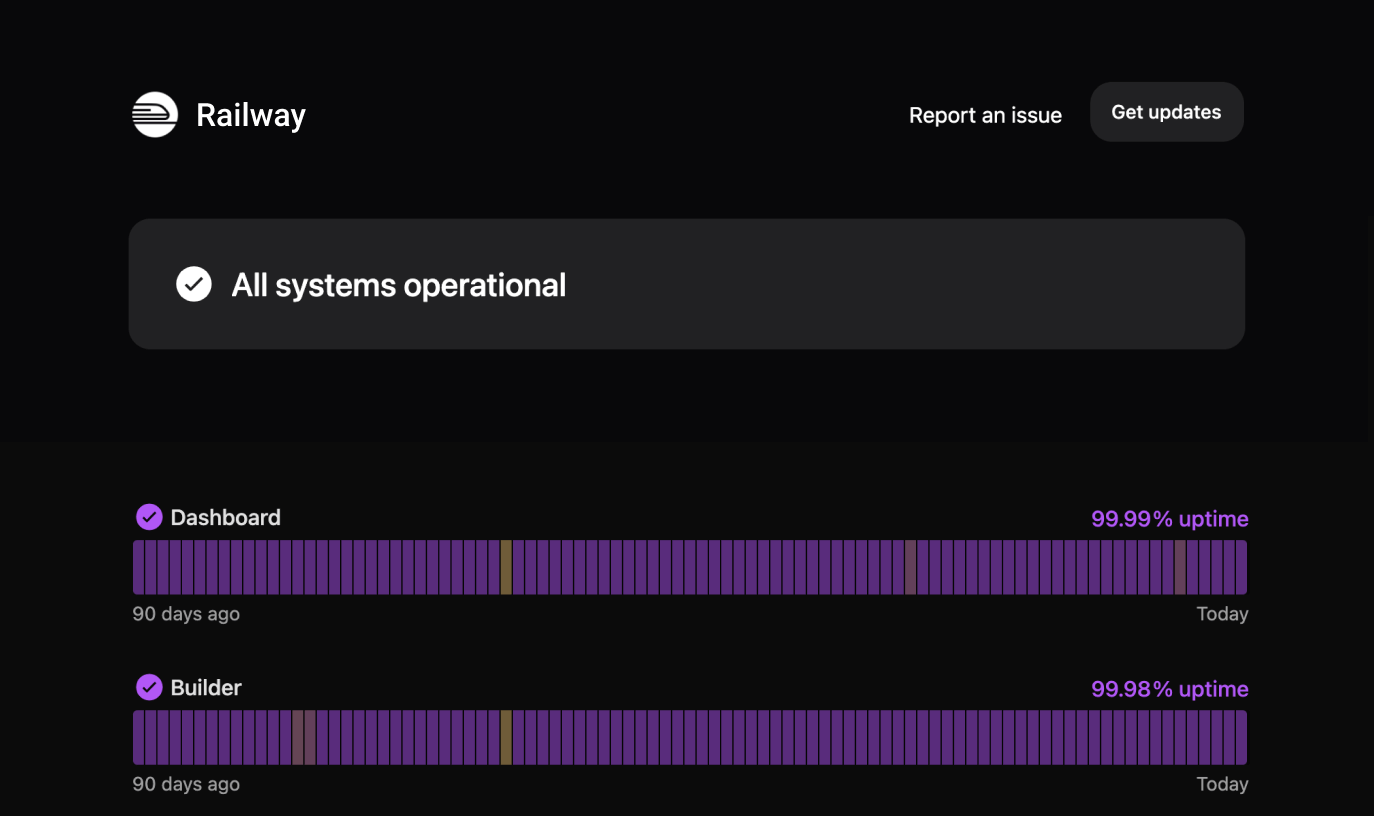Best DevOps Certifications for Elevating Your Skills & Credibility

DevOps has been growing as an industry in the last few years with the rise of SaaS. DevOps roles have also been increasing in demand, so it’s a great time to get into the industry. In fact, DevOps engineers appear to be one of the most in-demand IT positions in recent times, with over 17,000 job posts on Indeed.
Entering the DevOps industry requires you to have a lot of knowledge on tools like Instatus, along with various IT skills. Whilst you can do some self-teaching, professional training gives you a better sense of direction. Plus, getting a DevOps certification could boost your credibility for potential employers.
Curious about DevOps certifications? Read on to find out more.
What is a DevOps Certification?
A DevOps certification is an official credential that proves you have certain skill sets and expertise in DevOps. These certifications are usually awarded to you after you pass a specific exam. Different certifications will test for different things, with most of them testing your knowledge on a certain tool or program.
Why are DevOps Certifications Important?
1. Bolster Your Skills and Knowledge
DevOps certifications give you access to professional training, where you can build your DevOps skills and increase your knowledge. Work with various teams and experts to gain practical experience in DevOps, and use the exam syllabus to determine where you’re at in terms of skill level.
2. Better Job Opportunities
They help you get on the DevOps career path and open up more job opportunities for you. Some companies require or prefer candidates with a DevOps certification, so you can apply to more job roles and stand out from the competition.
3. It Validates Your Cloud Skills
DevOps certifications demonstrate and validate your skill set. They prove your expertise in certain subjects, so employers are more likely to trust in your DevOps skills.
Things to Consider Before Selecting a DevOps Certification
1. Background and Personal Interest
Consider your current experience in DevOps and what skills you want to further develop. Look for certifications that cover those topics, especially if they’re relevant to the job roles you’re aiming for.
However, if you don’t have any existing knowledge on DevOps, choose a broader certification that covers a wide range of topics. This way, you can get a better understanding of the overall field and discover what aspects particularly interest you.
2. Do Your Research
Do in-depth research into the different certifications before deciding on one. Check their website for details about their training or exam. Here’s a list of things you should be looking into:
- Exam syllabus
- Requirements
- Duration
- Expiration Date
- Pricing
- Certification Provider
- Industry Recognition
- Tools Mentioned (e.g., AWS, GitLab, Kubernetes, etc.)
3. Choose a Reputable Provider
Make sure to choose a certification provider with a high level of recognition in the industry, like Microsoft and Amazon. These providers are more trustworthy to employers than small businesses with little repute. Successful companies have access to more funds, so they can provide higher-quality training.
Here’s some examples of reputable providers:
- Udemy
- Learning Tree International
- Simplilearn
Best DevOps Certifications for Elevating Your Skills & Credibility
1. Certified Kubernetes Administrator (CKA)
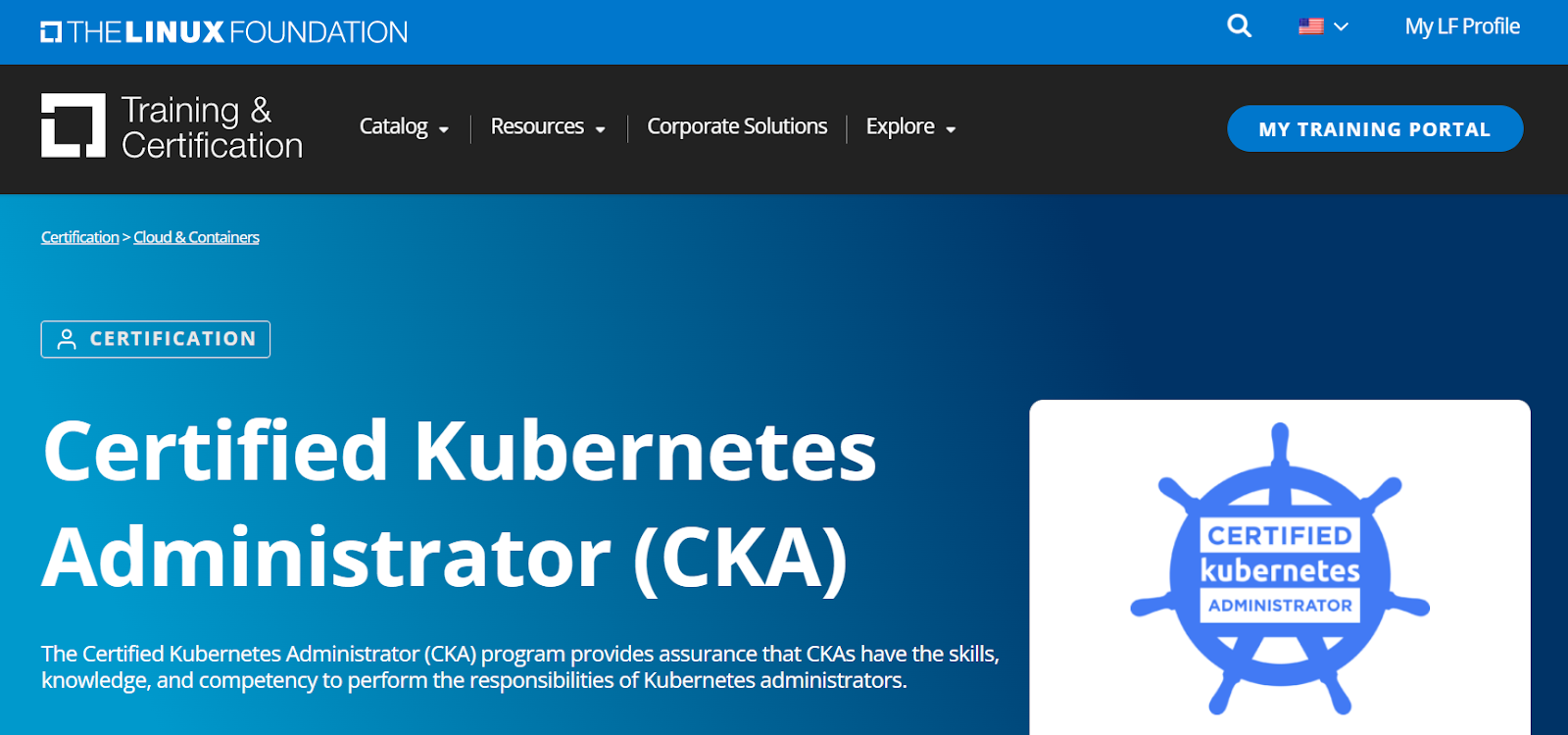
Kubernetes is a well-known container orchestration tool for automating software deployment. CKA certifications are sought-after by various companies since they cover Kubernetes administration extensively, teaching you valuable DevOps skills related to scaling, deployment, and general software management.
Exam Duration: 2 hours
Cost: $395 (exam only) or $595 (course + exam)
Valid for: 3 years
Requirements
None
Curriculum
- Cluster Architecture, Installation & Configuration
- Workloads and Scheduling
- Services and Networking
- Storage
- Troubleshooting
It’s a performance-based exam, and you only get one retake. If you’re successful, you receive a PDF certificate along with a digital badge.
Training
There’s an extensive CKA training program, which consists of 4 different modules:
- Kubernetes Fundamentals
- Introduction to Istio
- Introduction to Kubernetes on Edge with k3s
- Introduction to Serverless on Kubernetes
All the courses are online and there’s a 100% money-back guarantee, so you don’t have to worry about wasting your money. There’s also other training programs they offer for different certifications, including ones for Application Developers (CKAD) and Associates (KCNA).
2. AWS Certified DevOps Engineer — Professional
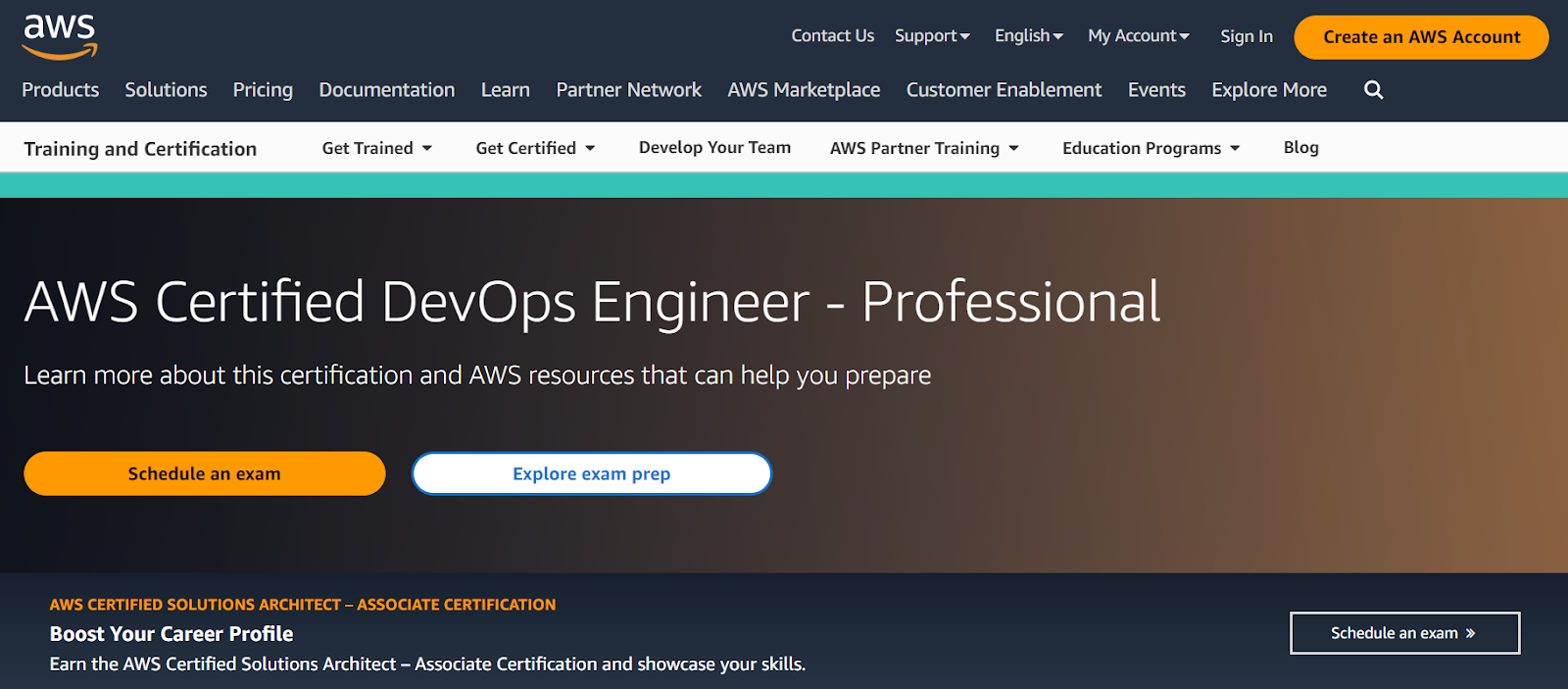
This DevOps certification revolves around your technical expertise with the AWS (Amazon Web Services) platform, which is a popular tool used for cloud computing. This exam is designed for DevOps professionals with two or more years of experience.
Exam Duration: 2 hours
Cost: $300
Valid for: 3 years
Requirements
There are no strict requirements, but they do recommend this exam to DevOps engineers who have:
- Proficiency in at least one high-level coding language
- Understanding of modern DevOps processes and techniques
- Experience in developing automated infrastructures and managing operating systems
- Ability to integrate continuous delivery systems on AWS
- Ability to automate security controls and deploy logging systems on AWS
Curriculum
- SDLC Automation
- Configuration Management and IaC
- Resilient Cloud Solutions
- Monitoring and Logging
- Incident and Event Response
- Security and Compliance
The exam is made up of 75 questions, featuring a mix of multiple-choice and multiple-response questions.
Training
AWS doesn’t offer any training programs, but they do provide you with a range of course materials relevant to the exam. Some materials are free whilst others require an AWS Skill Builder subscription ($29.00/month).
3. DevOps Engineering Foundation (DOEF)
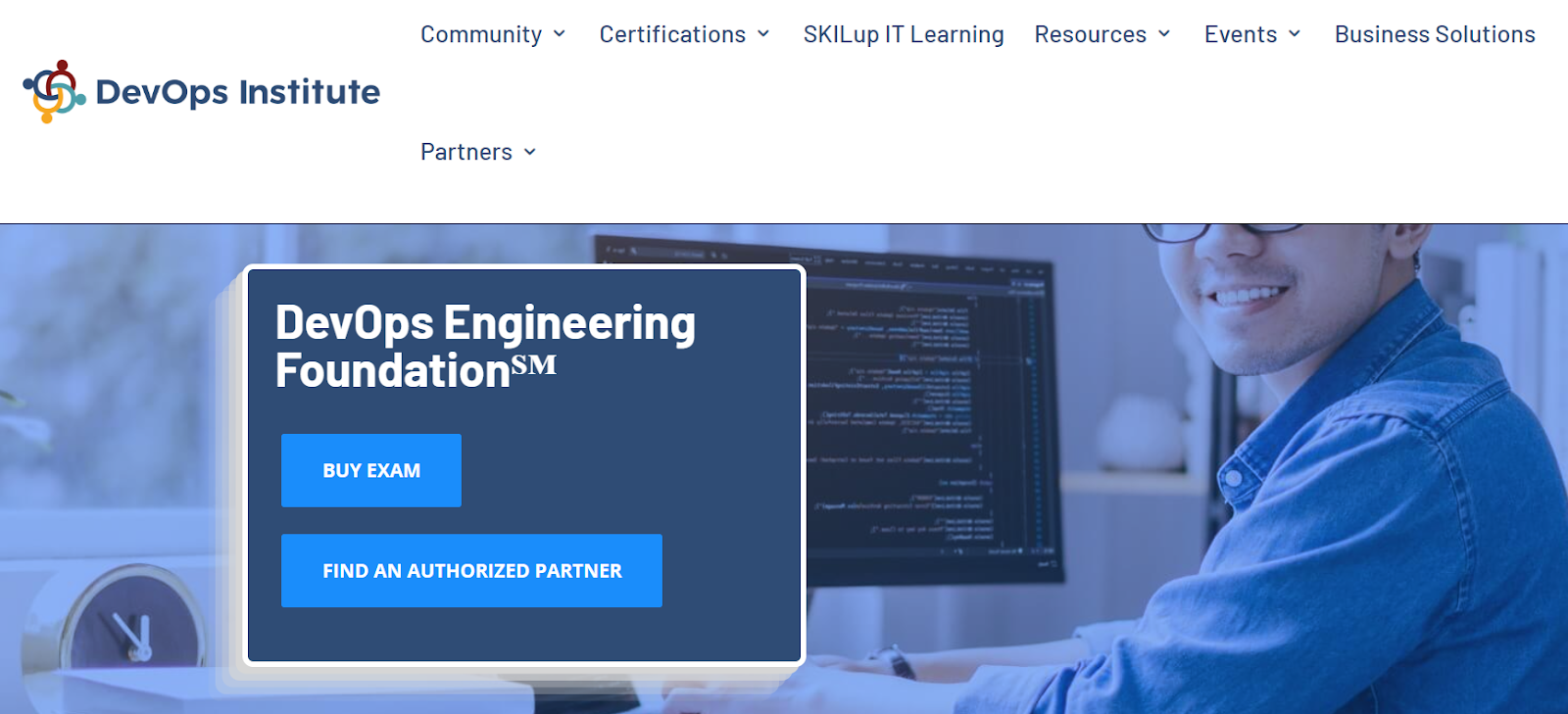
This certification is aimed at DevOps engineers looking to upgrade their technical knowledge. This foundation exam covers all the basic principles and techniques of DevOps, so it’s perfect for beginners.
Exam Duration: 1 hour
Cost: $270
Valid for: 2 years
Requirements
There are no requirements. However, DevOps Institute does recommend their candidates to have at least some basic knowledge about Agile and DevOps processes.
Curriculum
They don’t provide an official exam syllabus, but they do have a list of subjects they cover:
- Engineering DevOps Solutions
- DevOps Technologies Applications Architectures
- Ephemeral Elastic Infrastructures
- Continuous Integration, Delivery, and Testing
- Deployment Metrics
- Monitoring and Observability
- Governance, Human Aspects, and Future Trends
It’s a web-based open-book exam made up of 40 multiple-choice questions. You need a minimum of 65% to pass.
Training
They offer certification prep courses, which you can only access via a SKILup IT Learning+ subscription. For the foundation certification, there’s a 16-hour instructor-led course that covers all the subjects listed above.
4. Linux Foundation Certified System Administrator (LFCS)
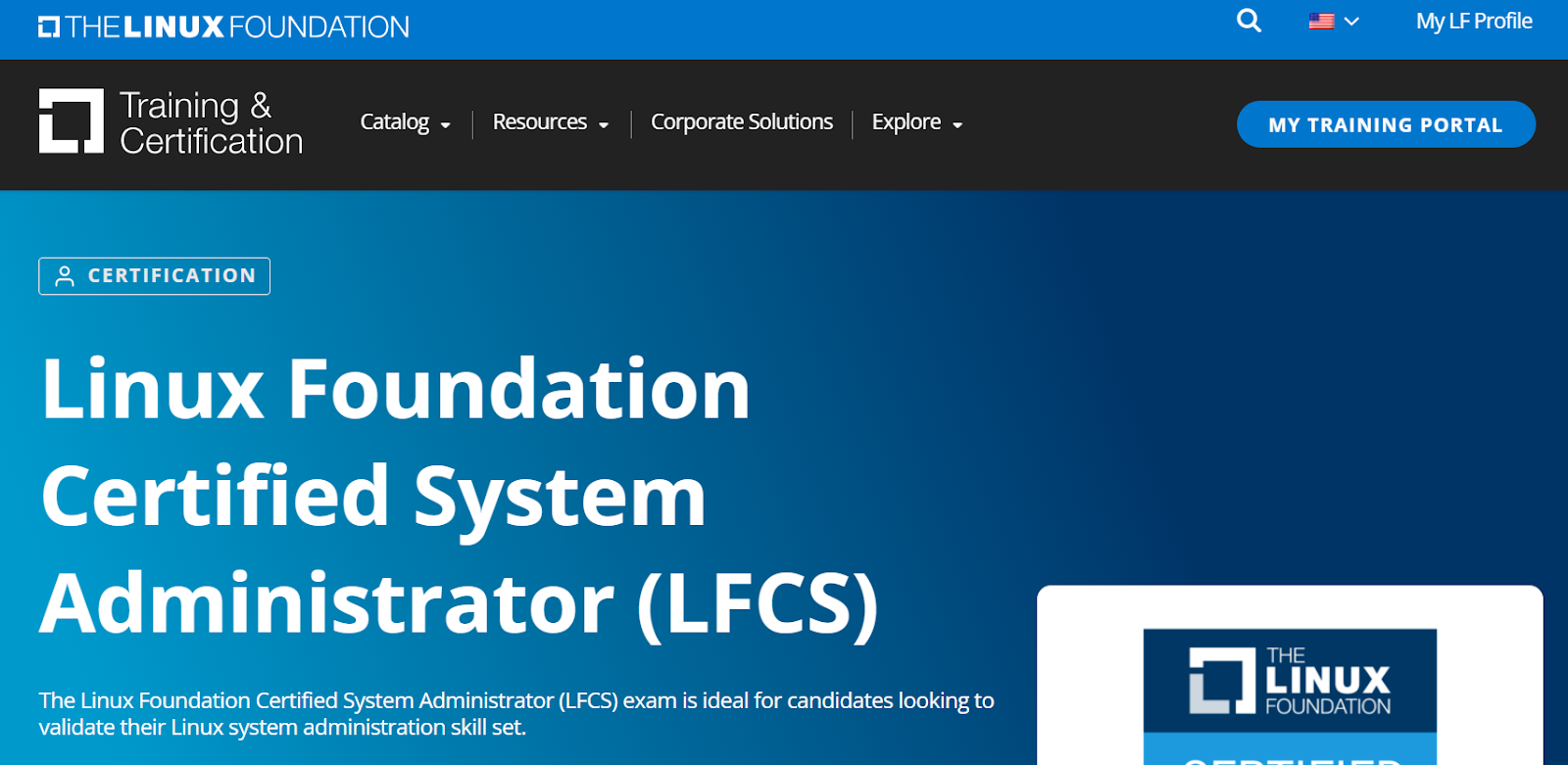
Aside from Kubernetes certifications, Linux Foundation also offers certifications for Linux system administration. This is ideal for anyone with experience in Linux or open-source operating systems.
Exam Duration: 2 hours
Cost: $395 (exam) + $200 (training course)
Valid for: 3 years
Requirements
Exam candidates don’t have to meet any requirements, but they do encourage you to complete the training course beforehand.
Curriculum
- Service Configuration
- Operation of Running Systems
- Essential Commands
- Networking
- Storage Management
- User and Group Management
Candidates can choose between CentOS 7 or Ubuntu 18 for their performance-based exam, where they simulate real-life scenarios faced by system administrators in the workplace.
Training
The training course consists of just one main module (Linux System Administration Essentials), which is split into 36 different parts.
5. Microsoft Certified: DevOps Engineer Expert
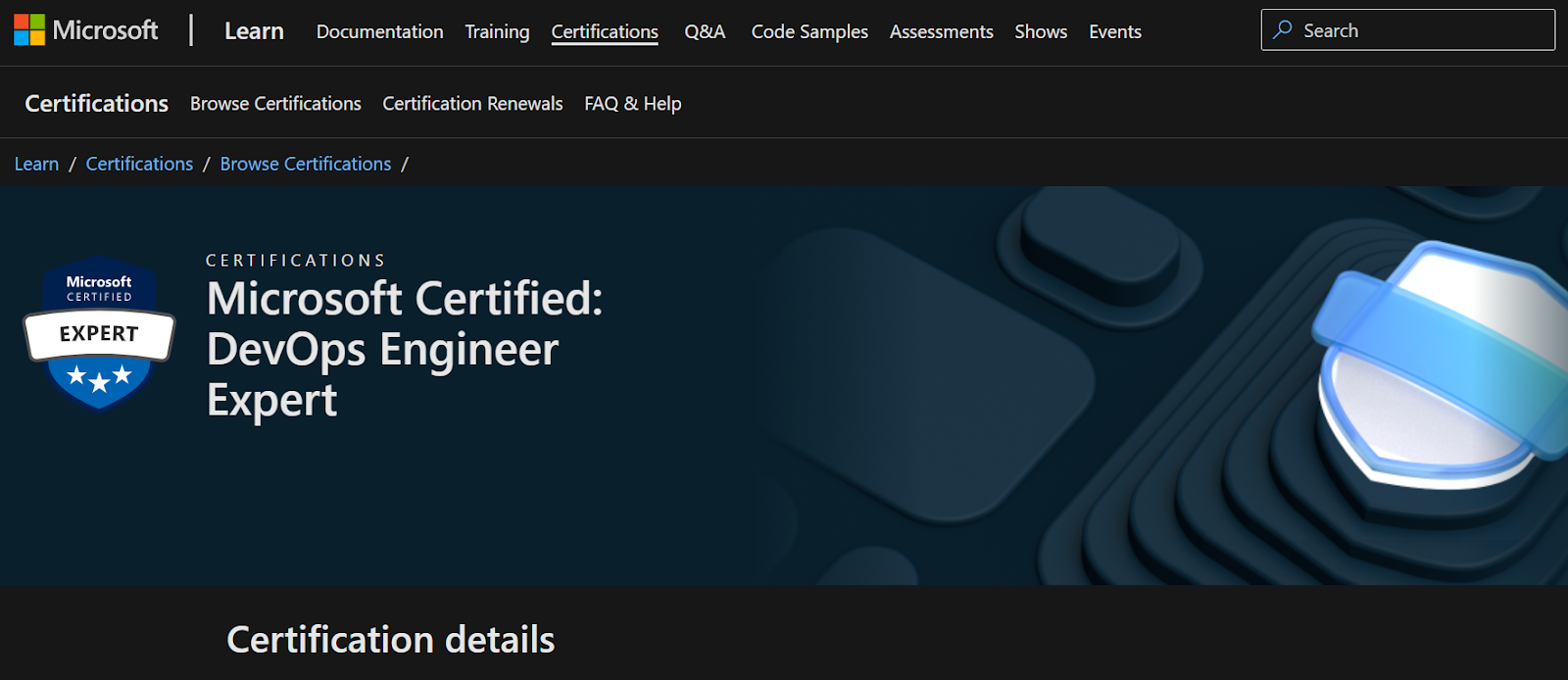
Microsoft Azure (cloud-computing service) offers a variety of certifications, including this Engineer Expert one aimed at professionals. They target people with experience in continuous delivery, testing, and other DevOps processes.
Exam Duration: 2.5 hours
Cost: $165
Valid for: 1 year
Requirements
Candidates must be knowledgeable about GitHub and Azure DevOps, have experience with developing or administering in Microsoft Azure, and get one of the following:
- Microsoft Certified: Azure Developer Associate certification
- Microsoft Certified: Azure Administrator Associate certification
Curriculum
- Design and Implement Source Control
- Configure Processes and Communications
- Develop a Security and Compliance Plan
- Design and Implement Build Pipelines and Release Pipelines
- Implement an Instrumentation Strategy
The exam is available in over 10 different languages, including English, Chinese, Russian, and Italian. You can renew your certification for free by passing an online test.
Training
They provide you with a 4-day instructor-led course, which covers this topic: Designing and Implementing Microsoft DevOps Solutions. If you prefer to be self-taught, Azure also has a range of resources available on their site.
6. Cloud & DevOps: Continuous Transformation by MIT
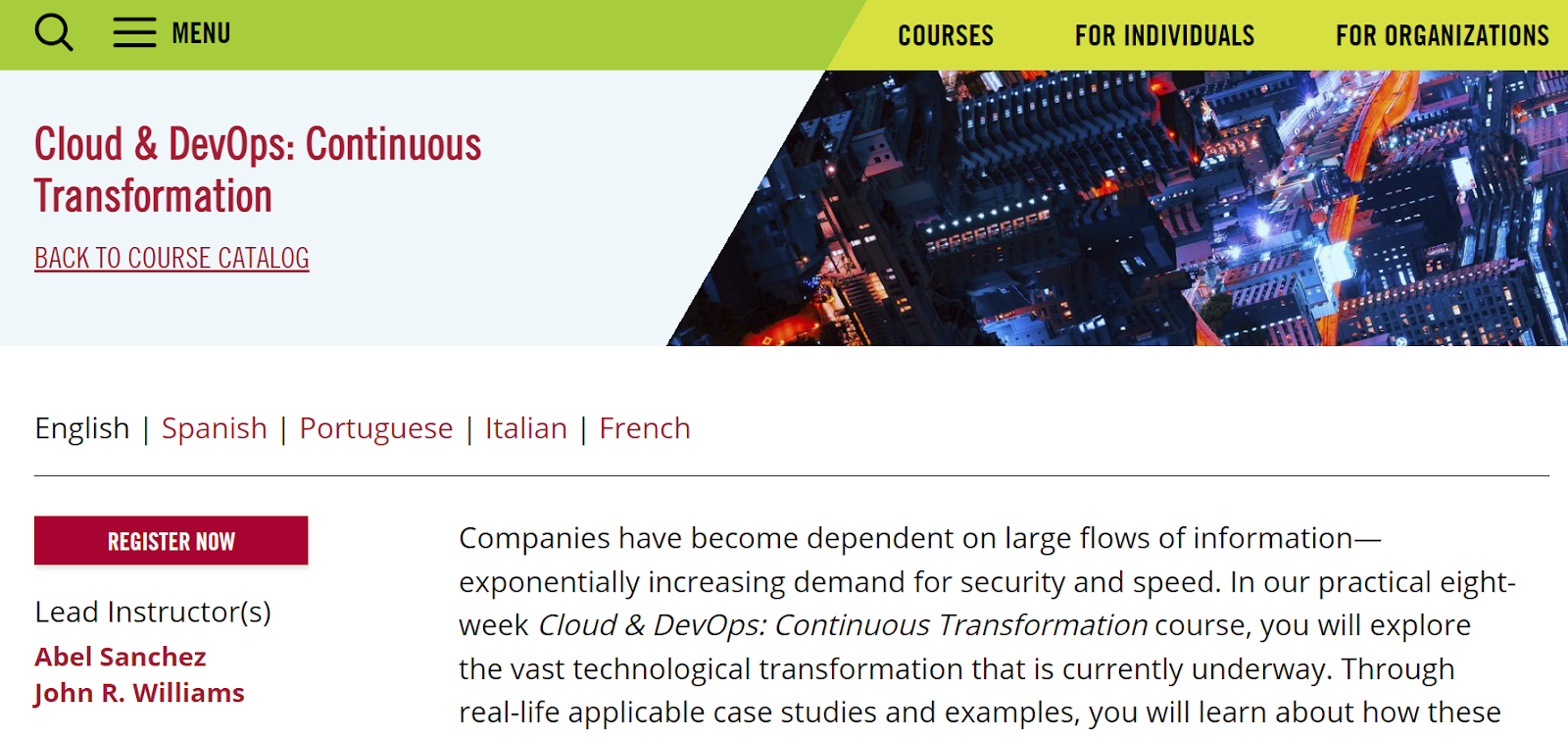
MIT (Massachusetts Institute of Technology) has a Cloud & DevOps certification course, which explores technological transformation in the 21st century and how cloud computing affects business operations.
Course Duration: 8 weeks
Cost: $2,900
Valid for: 1 year
Requirements
No requirements, but this course is made for professionals such as:
- Technical Experts
- CEOs or Entrepreneurs
- Technological Department Heads (e.g., Chief Technology Officers, Chief Information Officers, etc.)
- Functional Managers
Curriculum
- Origins and Future of Cloud Computing
- Core DevOps and Cloud Computing Methodologies
- Containers and Orchestration
- Automation in New Product Development
- Security and Performance in Software Design
Training
It’s a practical online course delivered by two lead instructors, and you’re provided with real case studies to work with. You can take the course in 5 different languages, but you must register before the deadline (6th July 2023).
Conclusion
DevOps roles are increasing in demand as SaaS becomes more and more commonplace. Whilst you can be self-taught in DevOps, it’s still worth looking into DevOps certifications as a way to back up your skills. Each certification has its own area of expertise, but most of them center around specific tools or processes.
Some certifications require you to have prior knowledge, so it’s worth familiarizing yourself with automation tools like Instatus. With the help of Instatus, you can monitor your software uptime and identify issues before customers take notice of them. Sign up today to get your free status page up and running in no time.
Get ready for downtime
Monitor your services
Fix incidents with your team
Share your status with customers

